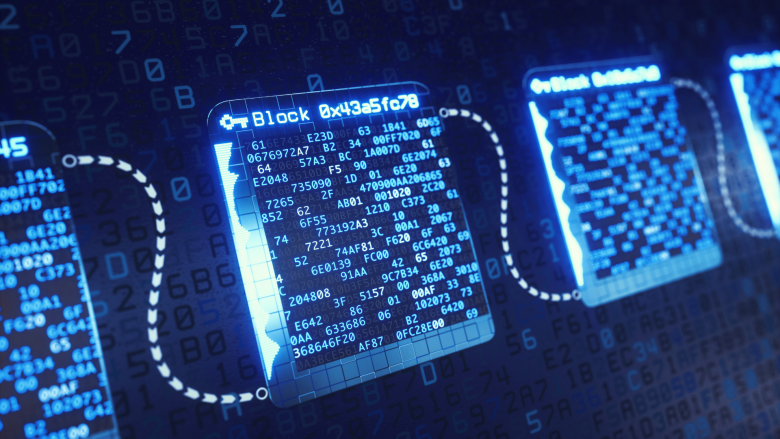Blockchain technology is all the rage today-but is it a good idea for healthcare? The answer is a qualified yes, but there is no panacea for all healthcare problems, so don’t get too excited. Read more.
Blockchain is the latest buzzword in healthcare, with many services already launching in the sector. One of the hottest areas is patient health records, with Blockchain made a viable option because it can help patients control who has access to their personal information. The companies that are at the forefront are taking advantage of the technology to provide patients with the ability to share their health information and give them access to their own records.
Blockchain Technology and Healthcare
- Blockchain technology holds the promise of bringing greater transparency, efficiency, and security to healthcare records, insurance billing, and even voting. While security and efficiency can be achieved by electronic health record systems as well, by following HIPAA compliance and hipaa risk assessment software, blockchain technology can take these benefits to another level. For instance, blockchain can convert the data into unreadable data, which will require a specific key to decrypt all the information for access. But the question is, how is it being applied so far? Well, check out the following significant applications that were brought by blockchain technology into the healthcare system:
- Blockchain technology has the potential to transform the healthcare industry by reducing costs and data transformation times. Blockchain Technology is disrupting many industries, but it already has a profound impact on healthcare. A blockchain is essentially a distributed digital ledger that is managed by a peer-to-peer network. In healthcare, this means a patient’s medical records are stored on a computer or digital device (like a smartphone), which is connected to the blockchain network. No two medical records are the same, which is why blockchain-based healthcare records are considered more secure and accurate than traditional ones.
- Blockchain technology stores patient health information. Blockchain is considered to be much safer and more secure than regular electronic patient health records. In the future, it could be used to store patient records, medical information, and all other types of data that can be stored in a digital format. Additionally, data can also be retrieved from the blockchain using modified APIs or web3 sql programs that are provided by analysis firms like Luabase or the ones like them. This in turn helps to save data securely as well as access it when necessary.
- Effectively handle all sorts of data, including health records. The Blockchain is a technological breakthrough that, once fully implemented, will change how we handle all sorts of data, including health records. Doctors, hospitals, and other healthcare institutions are currently using a variety of systems to handle patient and hospital data. Most of them may even have opted to outsource hospital billing solutions or something similar for their management-related tasks. Now, with an excess amount of data being handled, errors can happen either from the individual’s side or the software that is being implemented. All of these systems have their pros and cons, which can lead to errors, fraud, and lost records. Blockchain, a virtual data ledger that cannot be changed or corrupted, could help medics and patients tackle these issues.
- The blockchain technology is helping to identify fake content. The Blockchain is a way of your computer sending information to other computers around the world without any kind of middle man. It has been used for years for giving people around the world the ability to send messages to each other without either party having to trust the other with their personal data. Now, the Blockchain is being used for other things like helping to identify fake content on the internet as well as helping to improve the security of electronic medical records.
- Blockchain technology can facilitate the greater sharing of information between healthcare professionals. Blockchain is not a new technology, but it has only recently gained mainstream recognition. It is a new platform that allows people to share information in a secure way without centralized control securely. The technology has been around for several years, with many organizations adopting it, but the true potential of Blockchain hasn’t really come to light yet.
- Blockchain is a technology that offers a new way to share medical records and store medical data securely. Blockchain could potentially save lives, lower healthcare costs, and increase patient privacy if implemented properly. However, healthcare professionals, researchers, and regulators need to understand how the technology works and what they can do with it to reap these benefits. For instance, when hospitals partner with specialized firms for payer contracting with insurance providers, blockchain technology emerges as invaluable. By using blockchain, data stored securely facilitates smoother negotiations for more favorable contracts, fostering transparency and bolstering the security of financial transactions.
Blockchain is not a new technology, but it has only recently gained mainstream recognition. It is a new platform that allows people to share information in a secure way without centralized control securely. The technology has been around for several years, with many organizations adopting it, but the true potential of Blockchain hasn’t really come to light yet.
Blockchain technology: Are there risks involved?
Blockchain technology is a topic that has been gaining a lot of attention over the past year, with some startups developing solutions to make it easier to transfer data and trade medical records. Also, Blockchain is a disruptive technology that is transforming the way people live, and businesses operate. But what are the potential risks?
The potential benefits are enormous, but the technology is still in its infancy, with concerns that it could be used for nefarious purposes. There is a real risk that Blockchain could be used for fraud and cybercrime, but the technology is also being used for good and could give a real benefit to healthcare data security.



